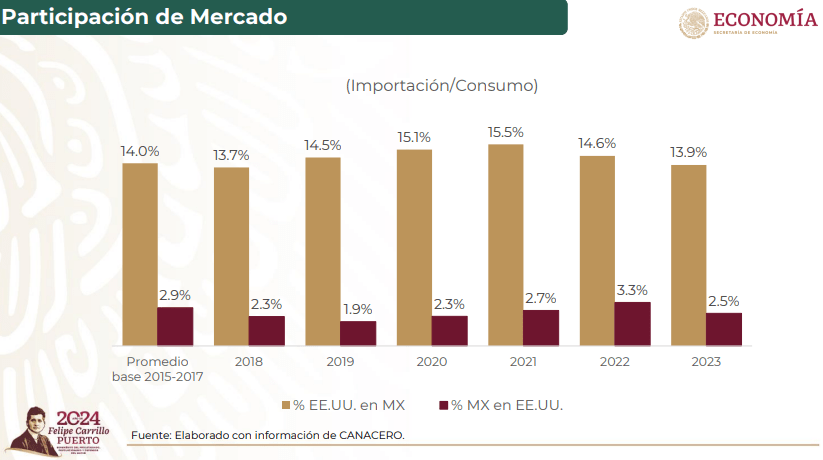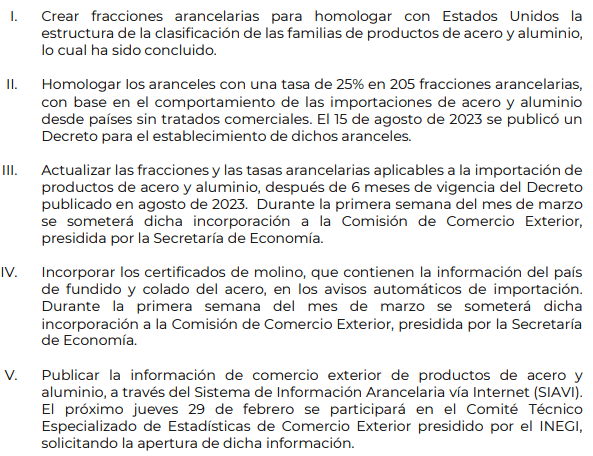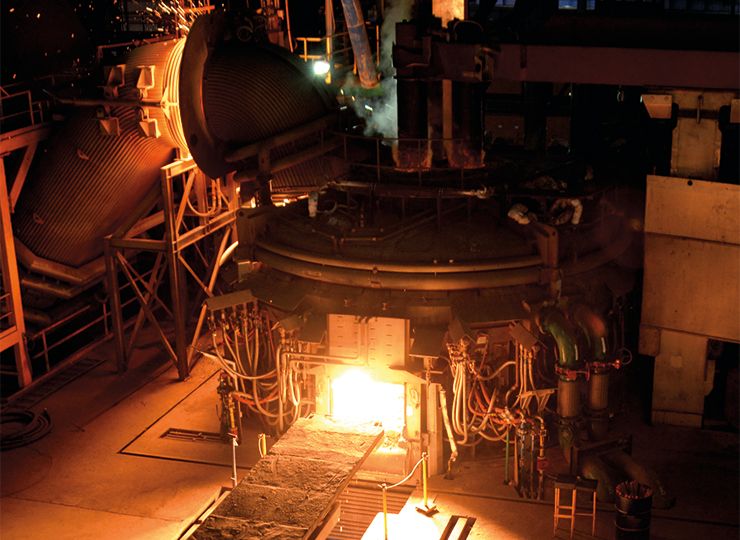Mexico will impose retaliatory tariffs on U.S. imports of certain types of steel if President Joe Biden’s administration determines to impose tariffs on Mexican steel products.
That was the warning issued by Raquel Buenrostro, Mexico’s Secretary of Economy, at a press conference.
It was also the response to the possibility opened by Katherine Tai, U.S. Trade Representative, of establishing a 25% tariff on U.S. imports of some steel products from Mexico, allegedly triangulated from other countries.

Buenrostro denied such practices and highlighted a series of measures taken by Mexico to maintain fair trade with its northern neighbor.
In February 2023, Biden announced additional increases to normal tariffs of up to 70% on certain products from Russia, including pig iron, certain steel products and ferroalloys, effective April 1, 2023.
At the same time, additional tariffs of 7.5% to 25% continue to apply to certain U.S. imports from China, including certain raw materials used in steel production, semi-finished and finished steel products, and steel-intensive processed products, pursuant to Section 301 of the U.S. Trade Act of 1974.
The Office of the United States Trade Representative (USTR) is currently conducting a legal review of Section 301 tariffs.
Retaliatory Tariffs
Mexico’s actions include the following:

Retaliatory tariffs are trade measures that a country takes in response to unfavorable actions by another country.
These actions may include unfair trade policies, undue trade restrictions, or any other practice that the country considers detrimental to its trade interests.
The U.S. Department of Commerce is managing a process in which U.S. companies can request and/or oppose temporary exclusions of products from Section 232 tariffs and quotas.
Multiple legal challenges to Section 232 action continue before the U.S. Court of International Trade (CIT) and the U.S. Court of Appeals for the Federal Circuit (CAFC), the latter of which has consistently rejected constitutional and statutory challenges to Section 232 action.
In the World Trade Organization (WTO), several challenges to Section 232 action and retaliation to Section 232 continue.

